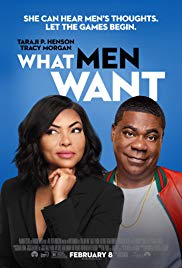
That park. That day. Texas. Austin Police Department detective Danny Rourke (Ben Affleck) regales his therapist with the story of the abduction of his seven-year-old daughter, Minnie (Ionie Olivia Nieves) which occurred three years ago and led to the dissolution of his marriage. Afterwards, he is picked up by his partner, Nicks (J.D. Pardo) who informs him they have received an anonymous tip that a safe deposit box will be robbed. While staking out the bank, they witness a mysterious man (William Fichtner) give instructions to civilians and fellow policemen who immediately follow his commands. Rourke suspects they are all in an elaborate heist and races to the targeted safe deposit box. Inside, he only finds a picture of Minnie with the message Find Lev Dellrayne written on it. The mysterious man escapes but Rourke is now convinced the heist has something to do with his daughter’s disappearance. A trace run by Nicks on the tip-off call leads Rourke to the address of fortune-teller Diana Cruz (Alice Braga). Cruz tells Rourke that the mysterious man from the bank is named ‘Lev Dellrayne’ and that he and Cruz are both the escaped ‘Hypnotics’: powerful hypnotists trained by a secretive government Division to control people’s minds. She also tells Rourke that he is mysteriously immune to her own mind control abilities. You cannot brute force a mind like yours. Dellrayne hypnotises Nicks into attacking Rourke and Cruz, forcing Cruz to kill him in self-defence. Now the two primary suspects in Nicks’ murder, Rourke and Cruz flee to Mexico. There, they learn from a former Division contact of Cruz’s Jeremiah (Jackie Earle Haley) that Dellrayne is searching for ‘Domino’ a weapon developed by the Division which was stolen and hidden by Dellrayne when he escaped. He erased his own mind. Dellrayne then wiped his own memory and left behind triggers that will prompt him to gradually recall Domino’s location and simultaneously increase his regained hypnotic power. Dellrayne uses his ability to control civilians to pursue Rourke and Cruz from the contact’s apartment and into the surrounding city. However, Rourke taps into his own (previously unknown and unacknowledged) hypnotic power to stop Dellrayne’s control of the civilians, allowing him and Cruz to escape. Rourke and Cruz next seek out River (Dayo Okeniyi), a reclusive Division hacker. He hacks into the Division database and learns that Rourke’s former wife, Vivian (Kelly Frye) was a member of the Division. Cruz and River figure Rourke must be another Hypnotic whose memory was wiped. Later that night, Rourke investigates River’s database on his own, learning that Minnie is actually the Domino: she is the daughter of two powerful hypnotics: Rourke and Vivian. And – Cruz is actually Vivian; Rourke’s memory of his wife’s face had been altered so that he believed ‘Cruz’ to be a stranger. Rourke then realises that all the events and locations seen up to this point have been hypnotic constructs created in a facility populated by Division agents that have simply acted out the roles of all the people he’s met up to this point. Vivian and Dellrayne’ explain that Minnie was born and raised within the Division but Rourke escaped with her to stop her from becoming their weapon. Rourke hid Minnie and then wiped his memory, so the Division has been repeatedly putting him through a constructed scenario to make him remember … Are you familiar with the concept of hypnotic constructs? Something of a flop on its US release, this Roberto Rodriguez film sits in the cinematic Venn universe where Philip K. Dick meets Christopher Nolan, albeit it is more logical and with a 50% running time of the latter’s usual output. Co-written by the director with Max Borenstein, there is a deal of not just mind- but actionbending, recalling the world of Inception, with an interesting twist in using Affleck (the world’s worst line reader, fact fans!) when he’s told by a guy raising his eyepatch to take a better look at him, There’s more to you than meets the eye. That applies not just within the story but within the Affleck star text and his granite persona is given a depth and range he’s not usually required to play. By the time the 13th construct is being enacted we’re up to speed along with him but he still has another card left in the deck. Like all disguised westerns this concludes with a shootout but it’s the who, why and how that make it pleasurable. It’s sharp and pleasingly complicated and at 94 minutes a painless exercise in freeform genre cinema. You brought this on yourself








